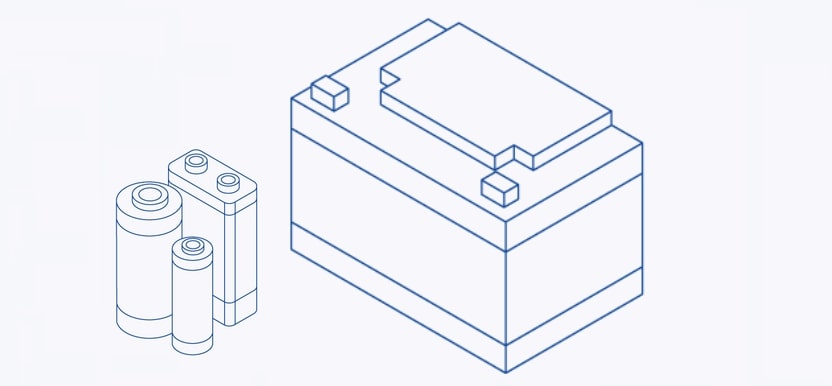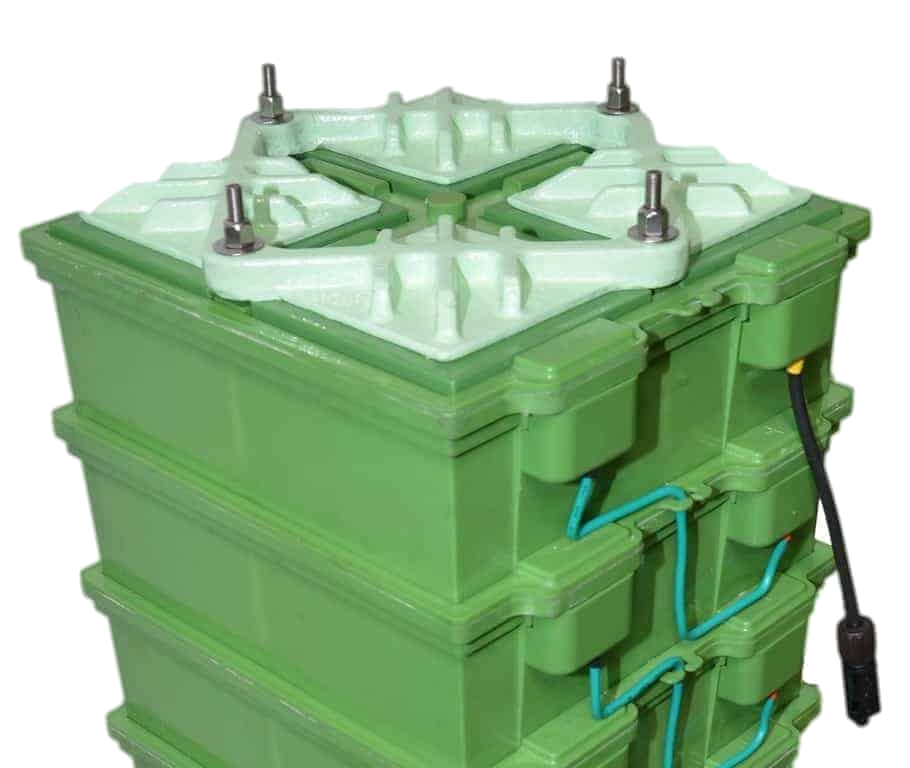Elfa can advise you professionally in determining the correct type of battery for your application. Elfa certainly not only weighs up the energy demand, but also the costs and especially the usage situation. We are therefore specialized in professional batteries and accumulators.

In addition to importing batteries and a wide variety of lighting technology, Elfa acts as a battery wholesaler. We represent leading brands such as Panasonic, Fiamm, Saft, Varta, Lead Crystal, Hawker, Cegasa and Powersonic. We can deliver many of these brands from stock. Ordered today will be shipped tomorrow. In addition to the 3,500 different articles that Elfa keeps in stock as standard, practically the entire range of all A-brands can be supplied on request.
Elfa provides advice on the Total Cost of Ownership (TCO), but also the reliability of the solution in terms of temperature range, weight and energy profile. In addition, the safety aspects are of course included. As a specialist, we see analyzing these matters as a must.
The diagram below gives you a rough impression of the properties of various battery technologies. These properties are different for each brand. We certainly recommend that you study the qualities of the various chemistries and seek advice from the experts at Elfa.

As shown in the table above, the different types of batteries and accumulators each have their own advantages and disadvantages, considering different factors such as charging speed, self-discharge and weight. A number of species will be discussed in detail.
As battery specialist Elfa knows the differences between the different types of accumulators and batteries. This is of course important to make the right choice. We are happy to advise you on this.
The most used battery is still the lead acid battery. An important reason for this is the fact that this variant has several advantages. A simple structure and a low price are examples of this. Elfa supplies these types of batteries to various applications such as telecommunications, data centers, railways, defense and security systems.
Fiamm lead acid battery
As specialist we find the lead-acid batteries of FIAMM a good option. Think of the ‘Fiamm Pb accu 6V 12Ah standard L151 B50 H94 faston4,8‘. This model is made of high quality material and is ideal for professional use. These are often used for UPS systems, emergency lighting and traction applications.
A feature of the lithium-ion (Li-ion) battery. The reason for this is the fact that the material (lithium) is the lightest of all metals, has a large electrochemical potential and the highest energy density. Li-ion is a leading battery technology that is often used in portable applications due to its high energy density and low weight. They are often used as laptop batteries or as batteries for modern flashlights. Here is an example of these batteries.
The fact that this type of battery does not contain cadmin or mercury is also good for the environment. In addition, the Li-ion battery can be charged much more often than, for example, a NiCd or NiMH battery. However, there are also a number of drawbacks. This type is not resistant to deep discharge and performs less well in hot and cold conditions. You will find more information here.
One brand that has addressed inherent drawbacks of standard Lihtium ion cells is Tadiran. TLI series Li-ion batteries have a lifespan of up to 20 years with 5,000 full charge cycles. These batteries can also store the high current pulses required for advanced two-way wireless communication and have an extended temperature range from -40 ° C to 85 ° C, with storage up to 90 ° C, under extreme environmental conditions.
Tadiran TLI series: robust performance and 20-year operating life that is unmatched
Lithium iron phosphate is a battery chemistry that has existed since 1996. Also known as LiFePO4 or LFP, this type is a lot safer than the LiCoO2 cells. Furthermore, we see (based on research) that Lithium iron phosphate batteries have more than 75% of the capacity after 2000 cycles. Provided the charger is sufficient, this type of battery can be quickly charged to 100% capacity. The LiFePO4 battery also stores better energy than most other lead batteries. The lithium iron phosphate battery stores 100%, while the other lead batteries often store around 85%. A side note to this type is a fairly high price and a limited supply. See an example of this type of battery below.
BlueSky Energy is an expert in energy storage solutions based on Sodium-Ion saltwater technology. The AIB saltwater battery is a modular building block for clean energy storage systems, designed and manufactured in Austria. Natural materials such as cotton and saltwater make this the safest and most environmentally friendly way to store electricity. This battery can be an ideal replacement for lead acid batteries and in many cases a good alternative for lithium batteries. BlueSky Energy is the safest energy storage for energy independence. The AIB saltwater battery is particularly suitable for long-term stationary applications such as in residential, off-grid, micro-grid and industrial applications. Quick and easy to install, durable and reliable in use.

In 1899 Waldmar Jungner invented the first nickel-cadmium battery. The chemistry used in this variant of batteries gained high popularity because the battery is very robust and can be charged very quickly with little stress. In addition, there were many other advantages of this type of battery, such as good performance at low temperatures. Below is an example of a nickel-cadmium battery.
Nikkel Cadmium Battery for emergency power lighting
A disadvantage is that cadmium is very toxic and therefore also harmful to the environment. Certain regulations have been drawn up for this. NiCd batteries may still be used for:
You can find more information on nickel-cadmium batteries on our website.
The Nickel Metal Hydride (NiMH) batteries can be seen as the development on the NiCd batteries, as they have up to twice the capacity of the latter. In contrast to the NiCd variants, the NiMH batteries They often suffer less from the so-called ‘memory effect’. Therefore they require less maintenance and care. An example of this type of battery, is the consumer rechargeable battery from GP.
Nickel Metal Hydride battery of GP
As battery specialist we are happy to answer all your questions! Of course you can also take a look at our range so that you get a complete overview of the different types of batteries from Elfa.
For questions, please contact us by filling in the contact form below. Of course you can also just leave your details so we can contact you.